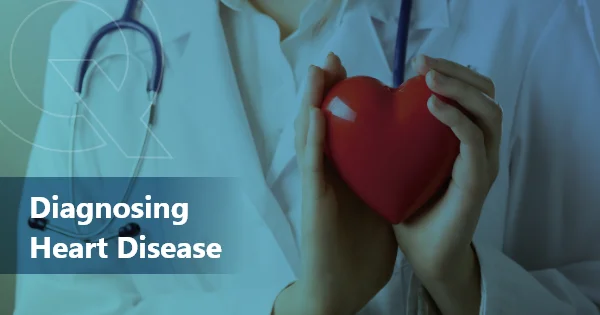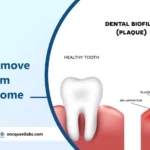Heart disease or cardiovascular disease refers to a group of diseases that affect your body’s heart and blood vessels. A person may experience some symptoms or not feel anything at all.
Heart disease includes heart or blood vessel problems of these types:
- Abnormal heart rhythms
- Heart valve disease
- Narrowing of the blood vessels in the heart, other organs or throughout the body with plaque
- Heart squeezing and relaxation difficulties
- Congenital heart disease
- Problems with heart’s outer lining
If you exhibit any symptoms, the doctor may perform a physical exam and ask questions about your symptoms, personal health and family health history. They may also order tests to help diagnose cardiovascular disease.
Contents
What are the symptoms of heart disease?
The symptoms may vary depending on the disease, but some of the symptoms include:
- Chest pain
- Shortness of breath
- Sweating
- Nausea
- Irregular heartbeat
If you have any of these symptoms, you may want to consult a doctor.
Are you at risk?
You may be more likely to develop cardiovascular disease if you have risk factors such as:
- High blood pressure (hypertension).
- High cholesterol
- Tobacco use.
- Diabetes.
- Family history of heart disease.
- Sedentary lifestyle or obesity.
- Diet high in sodium, sugar and fat.
- Overuse of alcohol.
- Preeclampsia or toxaemia.
- Gestational diabetes.
- Chronic inflammatory or autoimmune conditions.
- Chronic kidney disease.
How Is Heart Disease Diagnosed?
There are various tests used to diagnose heart disease. A doctor might start the diagnosis by asking:
- Personal and Family Medical History
- Current and Past Symptoms
- Laboratory Tests and an Electrocardiogram.
Based on the results of the assessments and tests, the doctor might order some further laboratory tests.
Laboratory Tests for Heart Disease Diagnosis
These tests help determine the risk of heart disease and assess the other body systems that might affect your cardiovascular health.
Here are salient blood tests for diagnosing Heart Diseases:
- Lipid Profile:
This test helps evaluate the risk of developing Cardiovascular disease (CVD) by measuring the amount and type of lipids (fats) in the blood. The test includes assessing the levels of:
- Total cholesterol
- LDL Cholesterol
- HDL Cholesterol
- Triglycerides
Lipoprotein (a); Lp (a)
This test identifies an elevated level of Lp(a). Lp is low-density lipoprotein (LDL) attached to a protein called apo (a). Genes play the primary role in determining your level of Lp (a).
C-reactive protein (CRP)
The liver produces C-reactive protein (CRP) as part of the body’s response to injury or infection. Inflammation plays a significant role in the process of Atherosclerosis, in which fatty acids build up and clog your arteries. CRP tests help create an entire picture of your cardiovascular health.
Homocysteine
Homocysteine is an amino acid (a building block of protein), and high levels increase your risk of heart and blood vessel disease. The doctor may recommend this test if you have an increased risk of developing heart disease or have a family history of heart disease.
HsCRP
High-Sensitivity C- Reactive Protein (hs-CRP) is a blood test that assesses the body’s low amount of C Reactive. It is a new age test to evaluate the risk of developing heart attack, stroke. The test accurately measures low but persistent levels of inflammation in the body that is associated with Atherosclerosis.
CK-MB
Creatine kinase-MB (CK-MB) is a form of an enzyme found primarily in heart muscle cells. The CPK-MB test is a cardiac marker used to help diagnose acute myocardial infarction, and it measures the blood level of CK-MB in the body.
Troponin – T, I (High Sensitive)
This test measures troponin T or troponin I proteins. These proteins are released when there is damage to the heart muscle, which might occur with a heart attack—the more damaged the heart, the greater the amount of troponin T and I in the blood.
Levels of troponin can get elevated in the blood within three to six hours after heart injury and may remain elevated for 10 to 14 days.
BNP and NT-proBNP
B-type natriuretic peptide (BNP) and N-terminal proB-type natriuretic peptide (NT-proBNP) are hormones released by the cardiomyocytes in the heart ventricles. They are released as a natural response to heart failure. Tests for BNP and NT-proBNP measure their levels in the blood to detect and evaluate heart failure. These values also depend on age and gender and are higher in elderly persons and women.
APOLIPOPROTEINS A1 & B
Apo A-1 is the main protein component of HDL, the “good cholesterol”, and Apo B is the main protein associated with LDL, the “bad cholesterol”.
Both are better indicators than LDL Cholesterol etc. and determine the risk of developing cardiovascular disease.
What are Non-Invasive Tests?
Based on reports of the above tests, the doctor may advise for further tests to diagnose and confirm coronary heart disease (CHD). These include:
Electrocardiogram
EKG or ECG is a simple test that can check your heart’s rhythm and electrical activity. Some specific patterns on the EKG help determine abnormalities such as atrial fibrillation (an abnormal rhythm) or heart attack.
Echocardiogram
An echocardiogram, or “echo”, is a scan used for looking at the heart and nearby blood vessels.
Stress EKG
This type of test involves raising your heart rate with exercise, for example, running or by medicine, while performing heart tests and imaging to check how your heart responds to the stress.
Thallium Scan
Also known as a stress-rest test. It involves a treadmill stress test and scanning the heart via nuclear camera after injection of a radionuclide material. It determines how much blood the heart muscle is receiving during rest and stress.
Carotid Ultrasound
To evaluate the risk of stroke by using sound waves. Carotid ultrasound tests for blocked or narrowed carotid arteries, which can increase the risk of stroke.
Holter Monitor
This test uses a Holter monitor to detect what the traditional Electrocardiogram (ECG) might not notice. It is a small wearable device that keeps track of the heart rate.
Invasive Tests
Cardiac Catheterization and Coronary Angiography
A short tube is inserted into a vein or artery in your leg or arm in this test. A hollow, flexible, and longer tube (guide catheter) is inserted into the short tube. This is a standard procedure that assists in diagnosing heart disease. It is also used to treat heart diseases by opening blocked arteries with balloon angioplasty and stent placement.
How is this test helpful to the doctor?
This test helps assess if:
- The blood vessels in the heart have narrowed
- The heart is pumping normally.
- The valves in the heart are functioning normally.
- If there are congenital heart abnormalities.
- The pressures in the heart and the lungs are normal.
How to treat heart disease?
The plans can vary depending on the symptoms and the type of cardiovascular disease. Cardiovascular disease treatment may include:
- Lifestyle changes: making changes to your diet, increasing your aerobic activity and quitting smoking.
- Medications: Medication type will depend on what kind of cardiovascular disease you have.
- Procedures or surgeries: If medications are not enough, your doctor may use specific procedures or surgeries to treat your cardiovascular disease. Examples include stents in the heart or leg arteries, minimally invasive heart surgery, open-heart surgery, ablations, and cardioversion.
- Cardiac rehabilitation: You may need a monitored exercise program to help your heart get more robust.
- Active surveillance: You may need careful monitoring over time without medications or procedures/surgeries
Disclaimer:
This blog is for informational purposes only and should not be construed as advice or as a substitute for consulting a physician. It is not a substitute for medical advice or treatment from a healthcare professional.
Sources:
.





